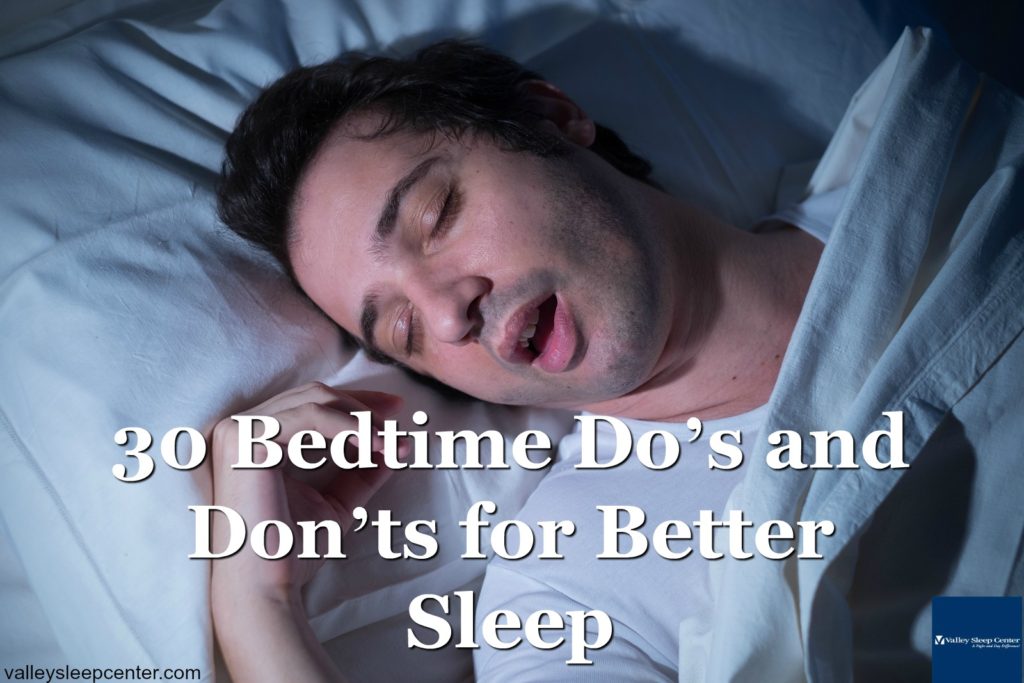Your health and well-being rely on a good night’s sleep. This is a list of 30 do’s and don’ts you can follow in the hours leading up to bedtime to help ensure that you are getting a good night’s rest.

Do’s
Do go to the bed and wake up at the same time daily. Even on weekends.
Do make sure you are getting enough sleep each night. The average adult needs between 7-8 hours.
Do make your bedroom as relaxing as you can. Keep it clean and free of clutter.
Do keep the bedroom for sleep only.
Do keep a journal to clear your mind before bed.
Do keep your room at a comfortable temperature.
Do keep your room as dark as possible. Consider using blackout curtains or a sleep mask.
Do get a mattress that is comfortable. Replace your mattress if it is over 9 or 10 years old.
Do use a pillow that best suits the position in which you most commonly sleep.
Do remove sleep distractions from your sleep environment.
Do eat foods rich in Tryptophan to help your body release melatonin if you need a snack closer to bedtime.
Do some calming yoga stretches before bed.
Do take a 20-minute power nap if you need it during the day.
Do exercise daily to help your muscles relax more easily at night.
Do take a warm bath to help you relax.
Do drink a relaxing herbal tea, such as chamomile, to help you wind down at night.
Do use calming aromatherapy, such as lavender, in your bedroom.
Do go to bed as stress-free and relaxed as you can.
Don’ts
Don’t drink beverages with caffeine late in the afternoon and evening.
Don’t use electronic devices (TV’s, cell phones, computers) within two hours of bedtime.
Don’t eat spicy and/or fatty foods at night to avoid indigestion.
Don’t eat large amounts of food late at night.
Don’t do vigorous exercise at night.
Don’t work right up to bedtime. You need to give your body time to unwind.
Don’t use alcohol as a sleep aid. Though it may help you fall asleep faster, it prevents you from entering the deep stages of REM sleep that you need.
Don’t stress and think about your problems right before bed. Keep your thoughts clear as possible.
Don’t drink too many fluids before you hit the hay. A full bladder will interrupt your sleep.
Don’t get into bed until you are tired. If you aren’t tired yet, you may toss and turn which can be stressful.
Don’t wear nightwear that is too tight as it will make you feel overly warm and uncomfortable.
Don’t break your bedtime routine. Following a routine keeps your circadian rhythm on track and helps you fall asleep faster.
If you have sleep troubles occur frequently over the course of several months you may have an underlying sleep disorder or health issue. A sleep study done by a sleep expert can help you understand if your sleep troubles are being caused by something bigger than bad habits.

